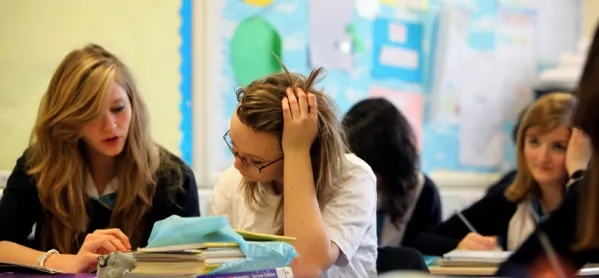There has already been one big cheer for the new Thersea May administration over its education policy.
It is great that responsibility for higher education is being transferrred from the old Department for Business, Innovation and Skills back to the Department for Education, where it belongs.
It always sat uncomfortably with Bis - as if higher education had nothing to do with primary and secondary education.
This gave the impression that post-16 education was only a stepping stone towards employment - and that its main task was to ensure that the graduates of tomorrow passed the employability test. Learning for the sheer enjoyment of learning, it seemed, was not a part of the equation.
That having been said, what else can we expect in the world of education from Theresa May’s government?
I suppose the first thing to say is that education will not be its major pre-occupation. No more education, education, education. Rather Brexit, Brexit, Brexit.
The are important tasks here - such as determining what the future holds for students from EU countries seeking places at UK universities. Some universities have already taken steps to reassure existing students that they will be able to carry on under existing conditions until the end of their courses - which is good.
Otherwise, it may well be that we are in for a reasonable period of stability in education while existing reforms bed in. I cannot imagine there will be any enthusiasm for reviving the idea that every state school should become an academy after the outcry this caused when it was announced in Chancellor George Osborne’s (who is he?) budget.
‘One question mark against education policy’
At least now we have a prime minister and an education secretary - Justine Greening - who were educated in the state sector. Ms Greening went to a comprehensive school and Ms May’s school became a comprehensive while she was there. The Notting Hill set - with its over-reliance on old Etonians deciding what is best for the disadvantaged - has gone. It has been replaced by a meritocracy which was summed up by Ms May at her first Prime Minister’s Questions, when she pointed out that the chairman of the Conservatives is a former miner.
There is one question mark which arose on BBC One’s The Andrew Marr Show a week ago last Sunday - and that is the issue of selection and the country’s grammar schools. We have had a stalemate over grammar schools for almost three decades now, with no new ones being opened and no existing ones being closed.
However, it has not gone unnoticed that there is a movement in Ms May’s constituency to create a “satellite” grammar school along the lines of the one approved by Nicky Morgan (and David Cameron) for Sevenoaks in Kent. If the government sticks to its present policy of allowing all good schools - including grammar schools - to expand, then we may see a modest increase in the number of selective school places in the years ahead.
Let’s hope it is no more than that - and let’s hope that, if it is, they take a leaf out of the Birmingham King Edward Foundation’s book and strive as hard as possible to ensure the proportion of pupils on free school meals in grammar schools approaches the national average - 15 per cent - rather than the 3 per cent in many of the country’s selective schools now. The foundation has done so by allowing students from disadvantaged backgrounds to win places on a lower pass mark in their 11-plus than their counterparts from the leafy suburbs - a policy which is in the throes of being replicated elsewhere in the country where they retain selective education.
Richard Garner was education editor of The Independent for 12 years, and has been writing about education for more than three decades
Want to keep up with the latest education news and opinion? Follow TES on Twitter and like TES on Facebook




